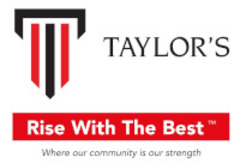During two years at Taylor's American Degree Transfer Program (ADP), students are exposed to the same education system practiced in U.S. universities. The courses are structured in a similar manner with similar modes of assessment, delivery methods, and teaching approaches. Taylor's ADP has continued to be a popular choice for its intensive student-lecturer interactions, broad range of courses, and numerous extra-curricular activities.
LIBERAL ARTS MAJOR KPT/JPS (R2/010/6/0351) (A 10995) 11/25
A liberal arts major offers a broad overview of the arts, sciences, and humanities.
Within the context of a liberal arts degree, you can study modern languages, music, English, anthropology, history, gender studies, or many other disciplines. Here are the common majors students pursue in the study of social science/ liberal arts and their descriptions.
Anthropology / Archeology
Anthropology is the study of humans and their cultural and physical environments. Students learn to analyze human cultures from various points of view. They also may learn about prehistoric humans and primates.
Archeology is the study of people who lived in the past and their ways of life. Students analyze fossils and mummies to understand how people lived. They learn how to go on “digs,” determine the age of fossils and human remains, and preserve artifacts.
History
Students who major in history are curious, competent with research, are interested in analyzing and understanding cultures and trends, and love to read.
In pursuing this major, students will learn how to study and interpret circumstances, events, influential people of the past, and how these factors affect the progression of societies all over the world.
Mass Communication
Programs in mass communication studies teach students the various means by which individuals and entities relay information through mass media to large segments of the population at the same time.
Students learn the history and cultural effects of newspapers, magazines, radio, television, film, and other media on society. They study critical thinking and learn to think in visual terms.
Political Science
Political Science studies governments around the world by concentrating on how a government’s structure and function affect social order. Students gain a solid awareness in the diversity of government around the globe and the various political theories, parties, and interest groups that correspond with these systems.
In addition, students develop an understanding of international relations, public laws, public administration, personal rights and freedoms, justice, and political authority.
Psychology
Psychology programs focus on human behaviours and mental states. Students learn how the credits credits mind develops, how people learn, and what motivates people.
They also learn how to construct experiments to discover and explain behaviour scientifically, and the research and testing methods necessary to acquire this knowledge.
Sociology
Sociology is the study of human behavior and interaction in the context of culture and society. Sociology studies the social institutions formed by mankind to determine the influence these institutions have upon individuals and groups.
Students take courses on sociological theory, research methods, statistics; and related areas such as history of social institutions, social psychology, and political science.



